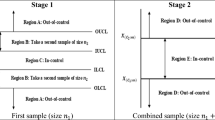Abstract
The Resource-Constrained Project Scheduling Project (RCPSP), together with some of its extensions, has been widely studied. A fundamental assumption in this basic problem is that the duration of activities is known before their execution. Very little effort has been made in developing heuristics for the RCPSP with stochastic durations, that is, when the duration of activities is given by a distribution of probability. In fact, the deterministic approach is often used even in the presence of non-trivial distributions. In this paper we discuss when it is worth the effort, in heuristic algorithms, to work with stochastic durations instead of deterministic ones. We also describe techniques that seem to be useful for a wide variety of heuristic algorithms for the stochastic problem. We develop two algorithms that include these procedures and that are capable of outperforming other existing heuristics in the literature. Computational experiments are provided on instances based on the standard set j120, generated using ProGen, and on the well-known Patterson set.
Similar content being viewed by others
References
Ballestín, F. (2002). Nuevos métodos de resolución del problema de secuenciación de proyectos con recursos limitados. PhD Dissertation, Universidad de Valencia.
Ballestín, F., Valls, V., & Quintanilla, S. (2004). Due dates and RCPSP. In 9th international workshop on project management and scheduling, Nancy, France.
Blazewicz, J., Lenstra, J. K., & Rinooy Kan, A. H. G. (1983). Scheduling subject to resource constraints: Classification and complexity. Discrete Applied Mathematics, 5, 11–24.
Brucker, P., Drexl, A., Möhring, R., Neumann, K., & Pesch, E. (1999). Resource-constrained project scheduling: Notation, classification, models, and methods. European Journal of Operational Research, 112, 3–41.
Carlier, J. (1984). Problèmes d’ordonnancement à contraintes de ressources: algorithmes et complexité. Thesis, University of Paris-VI, France.
Choi, J., Realff, M. J., & Lee, J. H. (2004). Dynamic programming in a heuristically confined state space: A stochastic resource-constrained project scheduling application. Computers and Chemical Engineering, 28, 1039–1058.
Demeulemeester, E., & Herroelen, W. (2002). International Series in Operations Research and Management Science: Vol. 49. Project scheduling—A research handbook. Dordrecht: Kluwer Academic.
Fernandez, A. A., Armacost, R. L., & Pet-Edwards, J. (1998). Understanding simulation solutions to resource-constrained project scheduling problems with stochastic task durations. Engineering Management Journal, 10, 5–13.
Glover, F. (1989a). Tabu search—part I. ORSA Journal on Computing, 1, 190–206.
Glover, F. (1989b). Tabu search—part II. ORSA Journal on Computing, 2, 4–32.
Golenko-Ginzburg, D., & Gonik, A. (1997). Stochastic network project scheduling with non-consumable limited resources. International Journal of Production Economics, 48, 29–37.
Graham, R. L. (1966). Bounds on multiprocessing timing anomalies. Bell System Technical Journal, 45, 1563–1581.
Hagstrom, J. N. (1988). Computational complexity of PERT problems. Networks, 18, 139–147.
Hartmann, S. (1998). A competitive genetic algorithm for resource-constrained project scheduling. Naval Research Logistics, 45, 733–750.
Hartmann, S. (2001). Project scheduling with multiple modes: A genetic algorithm. Annals of Operations Research, 102, 111–135.
Hartmann, S., & Kolisch, R. (2000). Experimental evaluation of state-of-the-art heuristics for the resource-constrained project scheduling problem. European Journal of Operational Research, 127, 394–407.
Herroelen, W., Demeulemeester, E., & De Reyck, B. (1998). Resource-constrained project scheduling: A survey of recent developments. Computers and Operations Research, 25, 279–302.
Icmeli, O., Erenguc, S. S., & Zappe, C. J. (1993). Project scheduling problems: A survey. International Journal of Operations and Production Management, 13(11), 80–91.
Kirkpatrick, S., Gelatt, C. D., & Vecchi, M. P. (1983). Optimization by Simulated Annealing. Science, 220, 671–680.
Kleywegt, A. J., & Shapiro, A. (1999). The sample average approximation method for stochastic discrete optimization. Technical report, School of Industrial and Systems Engineering, Georgia Institute of Technology.
Kolisch, R. (1995). Project scheduling under resource constraints—efficient heuristics for several problem classes. Heidelberg: Physica.
Kolisch, R., & Hartmann, S. (1999). Heuristic Algorithms for solving the resource-constrained project scheduling problem: classification and computational analysis. In J. Weglarz (Ed.), Handbook of recent advances in project scheduling (pp. 147–178). Boston: Kluwer Academic Publishers.
Kolisch, R., & Padman, R. (2000). An integrated survey of deterministic project scheduling. Omega, 29, 249–272.
Kolisch, R., & Sprecher, A. (1997). PSPLIB—a project scheduling problem library. European Journal of Operational Research, 96, 205–216.
Kolisch, R., Sprecher, A., & Drexl, A. (1995). Characterization and generation of a general class of resource-constrained project scheduling problems. Management Science, 41, 1693–1703.
Möhring, R. H., Radermacher, F. J., & Weiss, G. (1984). Stochastic scheduling problems, I: General strategies. Zeitschrift für Operations Research, 28, 193–260.
Möhring, R. H., Radermacher, F. J., & Weiss, G. (1985). Stochastic scheduling problems, I: Set strategies. Zeitschrift für Operations Research, 29, 65–104.
Özdamar, L., & Ulusoy, G. (1995). A survey on the resource-constrained project scheduling problem. AIIE Transactions, 27, 574–586.
Patterson, J.H. (1984). A comparison of exact procedures for solving the multiple constrained resource project scheduling problem. Management Science, 30(7), 854–867.
Pinson, E., Prins, C., & Rullier, F. (1994). Using tabu search for solving the resource-constrained project scheduling problem. In Proceedings of the 4 international workshop on project management and scheduling, Leuven (pp. 102–106).
Sprecher, A., Kolisch, R., & Drexl, A. (1995). Semi-active, active, and non-delay schedules for the resource-constrained project scheduling problem. European Journal of Operational Research, 80, 94–102.
Stork, F. (2000). Branch-and-bound algorithms for stochastic resource-constrained project scheduling (Research Report No. 702/2000). Germany: Technische Universität Berlin.
Tsai, Y.-W., & Gemmill, D.D. (1998). Using tabu search to schedule activities of stochastic resource-constrained projects. European Journal of Operational Research, 111, 129–141.
Valls, V., Ballestín, F., & Quintanilla, S. (2004). Project length minimization in preemptive resource-constrained project scheduling. In 20th European conference on operational research, Greece, 4–7 July 2004.
Weglarz, J. (1998). Project scheduling. Recent models, algorithms and applications. Dordrecht: Kluwer Academic.
Author information
Authors and Affiliations
Corresponding author
Additional information
This research was partially supported by the Ministerio de Ciencia y Tecnología under contract TIC2002-02510 and the Agencia Valenciana de Ciencia y Tecnología, GRUPOS03/174.
Rights and permissions
About this article
Cite this article
Ballestín, F. When it is worthwhile to work with the stochastic RCPSP?. J Sched 10, 153–166 (2007). https://doi.org/10.1007/s10951-007-0012-1
Published:
Issue Date:
DOI: https://doi.org/10.1007/s10951-007-0012-1




